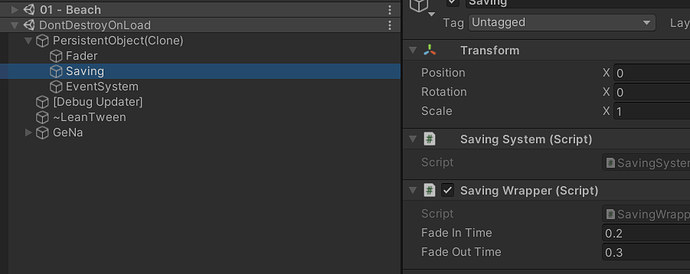Hello there,
I’ve made the menu, for the character creation and I’ve added the name inside the PlayerConverstant class, so I’ve implemented the ISaveable interface which can’t be more simple
public object CaptureState()
{
return playerName;
}
public void RestoreState(object state)
{
playerName = (string)state;
}
But when the ingame scene gets loaded the PlayerConversant variable still the default one.
Maybe I forget how it works, but shouldn’t the name be restored on the fly as soon as the PersistentGameObject get loaded? 
Also, the variable inside the PlayerConversant gets updated during the character creation, so this part is fine.
Is there a way to debug/read all the saved data in the save file? 
Anyway the string is present in the save file
#GranDucato.Dialgue.PlayerConversantE Pippo​ºÿÿÿüÿÿÿ






